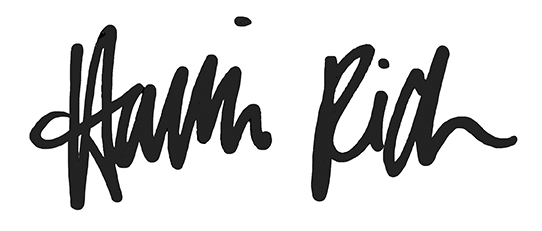AI Is Really Something | Editorial
Artificial intelligence—a creative’s job killer or a game changer?
Artificial intelligence—a creative’s job killer or a game changer?
 YEARS AGO I saw a film at the Cleveland International Film Festival called From Nothing, Something, which explored the creative process. In the film, novelist Tom Perrotta described the act of writing like that of a mad scientist inventing: “You’re building a machine that is going to have to run on its own. So early on, you’re very much in charge, and you’re building these parts. And then there’s that Dr. Frankenstein moment when you connect the two wires and see if the thing starts to lurch into motion.”
YEARS AGO I saw a film at the Cleveland International Film Festival called From Nothing, Something, which explored the creative process. In the film, novelist Tom Perrotta described the act of writing like that of a mad scientist inventing: “You’re building a machine that is going to have to run on its own. So early on, you’re very much in charge, and you’re building these parts. And then there’s that Dr. Frankenstein moment when you connect the two wires and see if the thing starts to lurch into motion.”
His description of writing is more about magic than machinery. But mad science seems like an apt metaphor in this moment when so many conversations about the future of libraries, media, and information involve artificial intelligence (AI). While many of us already use some AI in our work (hello, spell check!), generative AI—even in its nascency—has dominated tech news as of late, stoking fear, enthusiasm, and a good bit of misunderstanding.
To help the library field keep pace, LJ is prioritizing AI coverage. From an AI overview (“Next Gen AI”) to its role in academic libraries (“AI in Academia”) and public libraries (coming in November), we’re reporting on AI functionality, its library impact, and the ethical considerations we must keep front of mind. We’re also making it a key topic in our 2024 Directors’ Summit and professional development courses. This month, Matt Enis, LJ’s senior technology editor, explores the AI tools that library vendors are bringing to market to benefit library operations and bring readers and learners closer to content faster and with greater ease (“AI on the Horizon”).
AI already works to make information more discoverable and accessible—and it has the potential to ensure massive volumes of content are useful in ways that will undoubtedly make lives better. Yet for all the promise it holds as a tool for improved information discovery and delivery, much conversation (and consternation) has focused on its potential in the creative space.
Creative work that was once considered safe from automation certainly faces risks from generative AI. The Writers Guild of America recognized this risk when they went on strike in 2023, negotiating protections in their contract to ensure screenwriters can use AI as a tool to complement, rather than replace, their work.
Authors, on the other hand, have fewer protections against AI-generated content supplanting their work—but that may be partly because machine-written text cannot be copyrighted. Far more problematic for authors is the unauthorized and unpaid use of their material in training AI models.
Unlike human creativity, the “nothing” from which “something” is created using generative AI is actually a lot of other people’s somethings. Last year, The New York Times, actress Sarah Silverman, and a group of novelists including John Grisham, Jodi Picoult, and David Baldacci filed lawsuits against OpenAI, the maker of ChatGPT, for copyright infringement by using their content to train the AI. The Authors Guild is advocating for creators to be properly credited and compensated for their contributions to the developing technology.
The creative work that we associate with librarianship is not immune to challenges from AI. Goodreads, Amazon, and other commercial algorithmic engines provide book recommendations based on vast troves of data processed at rapid speeds. A company called Rebind recently launched a product in beta that aims to engage readers in AI-generated “conversations” about classic books. Margaret Atwood, Roxane Gay, and Marlon James are among the luminaries who have agreed to record commentary that will be used by its chatbot.
Can the human experience of the library be automated away by AI? That seems unlikely. Librarianship is about relationships, and technology can be a conduit for them, but it’s not a replacement. What’s true is that AI is an increasingly powerful tool that we need to be comfortable using in library work and helping others to use in their work.
Yes, AI is certainly something. But people are not nothing.


I enjoyed this introduction to your AI conversation and will be looking forward to new articles on this important topic.
Add Comment :-
RELATED
ALREADY A SUBSCRIBER? LOG IN
We are currently offering this content for free. Sign up now to activate your personal profile, where you can save articles for future viewing









